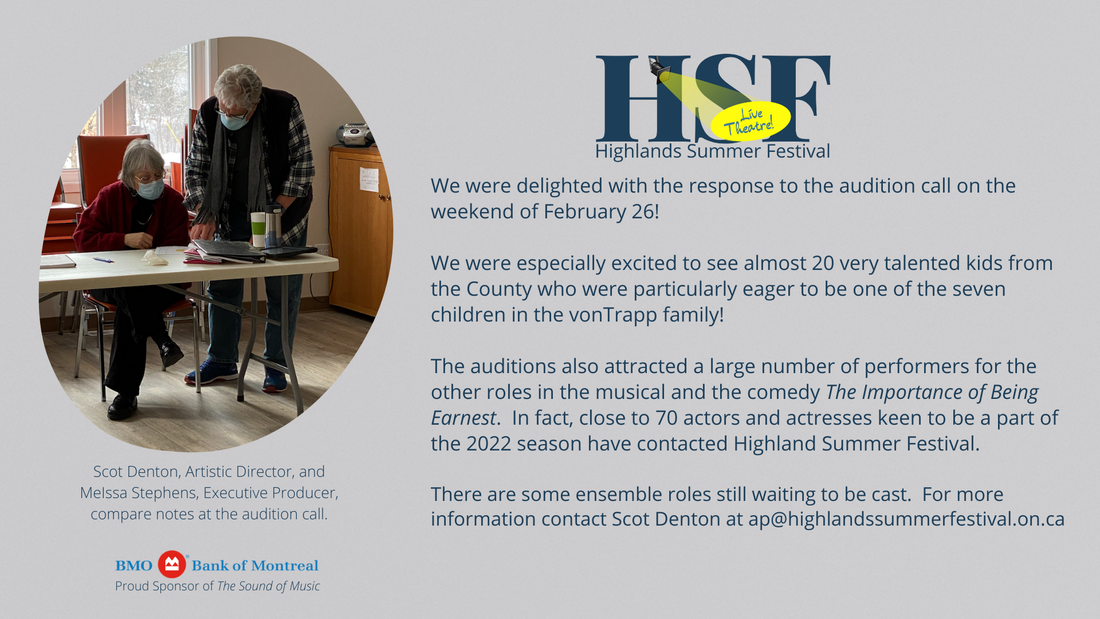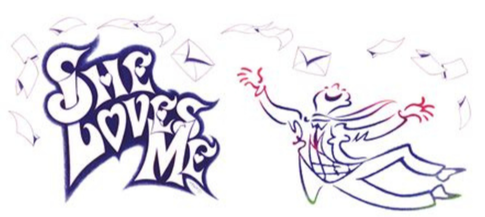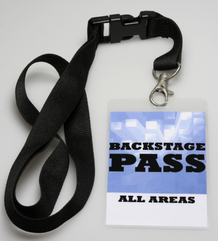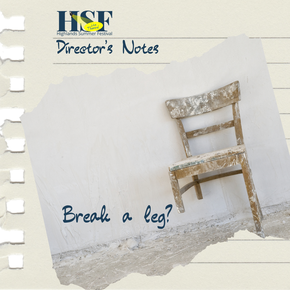 It is common knowledge that one should wish an actor “break a leg” for a great performance; to wish an actor “good luck” is considered to be bad luck! The origin of this maudlin greeting, first recorded in print in the early 1920s, is a little vague. Of course, theatre ghosts are always a consideration; it was thought that mischievous theatre ghosts would wreak havoc on good wishes and make the opposite happen. The most common theory suggests that ‘leg’ refers not to the actor but to the short curtains that hide the backstage from the audience; breaking a leg means the actor has stepped from the wings into the spotlight. In Vaudeville companies, only those actors who actually stepped on stage got paid so perhaps break a leg was a simple wish that an actor would get paid. Other ideas suggest that the manner in which the audience showed appreciation for the performance is responsible for the phrase. In ancient Greece the audience stomped their feet and during Elizabethan times, the audience would bang their chairs on the ground. And still others say that bowing – placing one leg behind the other and bending the front leg, thus breaking the line of the leg as viewed by an audience – is the reason for the phrase. There are, of course, more theories, but the point remains, please wish our actors ‘break a leg’ and not good luck! 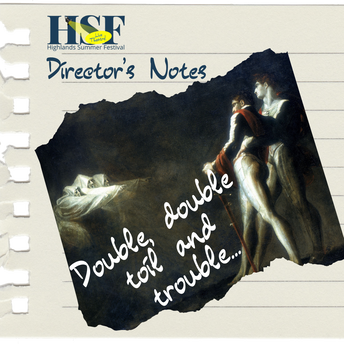 Shakespeare’s Macbeth, probably one of the most famous theatrical productions, is believed by theater people to be the most cursed. Just saying “Macbeth” in a theatre is thought to invoke the curse, so the play is general referred to as “The Scottish Play” to avoid disaster. Except during the actual performance of the play, actors avoid quoting lines from the play, and in particular, the Witches incantations. Legend has it that a curse was set upon the play by a coven of witches who were angry that Shakespeare used an actual spell in the play – “Double, double toil and trouble/Fire burn and cauldron bubble…”. Some believe that the play was considered cursed as it was so often associated with theatres going out of business; many theatres produced the popular play to restore their prosperity but could not meet the high production costs. And, of course, the more practical view that any play running for more than 400 years is sure to have its share of misfortune. The play’s saga of bad luck dates back to its very first performance (circa 1606) when the actor playing Lady Macbeth died suddenly and Shakespeare was forced to take his place on stage. Other reports of the curse include the death of an actor on stage in Amsterdam in the 17th century when a prop dagger was replaced with a real dagger. Productions of the play have incited audience riots, most famously in New York in 1849 when a riot turned violent leaving 22 dead and more than 100 injured. Fortunately, there is an antidote. The speaker of the name must leave the theatre building, perform a cleansing ritual - spin around three times, spit, curse - and then knock to be allowed back in. A variation on this ritual, requires the recitation of a line from a different Shakespeare play in place of the curse. Outside the theatre and after the performance, the name may be spoken. It is interesting to note that the ‘cursed line’ from the witch’s incantation is thought to be one of the most cited line from Shakespeare’s plays.  Theatre folk are, for the most part, a very superstitious lot; they will happily admit it. While many of their superstitions have their origins in reality, they hold fast long after they are necessary. Such is the case with not whistling in the theatre. This superstition likely dates back to before the 17th century when out-of-work sailors, because of their expertise with ropes and knots, were hired to manage the fly loft – the large space above the stage into which backdrops and set pieces are hoisted out of sight or from which are dropped into place on the stage. The fly loft is managed using a system of rope lines, pulleys and counterweights. A system of whistles, much like that on a sailing ship, was used to signal the sailors to raise and lower specific pieces. Reasonably, casual whistling was banned in theatres to prevent it being accidently interpreted as a fly loft command, avoiding a weighty set piece being dropped on an actor’s head. Today, the stage manager simple whispers into her radio headset and backdrops and set pieces glide quietly down on electric winches. And yet, to this day, it remains bad luck to whistle in a theatre!  Well, here we are…..a New Year and an old contest about to fold up our photos and go home. It all began back in May 2020 and has continued for 19 contests. Over the year and a half we have given away 36 tickets to one of the dynamic summer theatre company in Southern Ontario, with one more grand prize to give away….two season passes for the 2022 season. So as the curtain closes on the Photo Contest it rises with renewed optimism that this year will see live theatre once again on the Northern Lights Performing Arts Pavilion. Contest #19 showed the cast of the 2019 production of Mary Poppins singing the never to be forgotten Supercalifragilisticexpialidocious. The winner of Contest # 19 - two season passes - is Laura Atkinson. But before we go, we like to say thank you everyone for playing the game. We know you enjoyed seeing the pictures from the 20 seasons of Highlands Summer Festival productions. We look forward to seeing you this summer at the theatre where we can make more memories again! 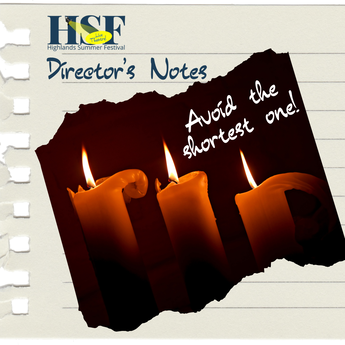 A ghost light is typically a bare light bulb on a plain pole that illuminates the stage when the theatre is not in use. The obvious reason for a ghost light is safety; the ghost light sufficiently illuminates the stage so that the edge of the stage and set pieces may be avoided by the first and last cast or crew member on stage. Legend has it that a burglar successfully sued a theatre company when he broke his leg falling into the orchestra pit. That said, this is theatre and there must be drama! Theatrical performances are surrounded by a very superstitious culture and few theatre people would deny the existence of theatre ghosts. Ghost lights date back to the time of Shakespeare, and likely before that. Legend tells us that a candle would be left burning on the stage to dispel the ghosts of past performances, especially if the performance had gone badly. While some now say the ghost lights scare away the ghosts, others argue that the lights allow the ghosts to perform at night when the theatre is empty. To this day, many theatres reserve two seats for the ghosts for every performance and two seats remain bolted in the open position for the ghosts in a famous London theatre. During the COVID pandemic, ghost lights saw a resurgence as theatres around the globe turned on ghost lights, a symbolic glimmer of hope that theatres would not remain dark. They were the sole illumination of so many stages for almost two years. Today, ghost lights are being extinguished as the stage lights come up. The Highlands Summer Festival is delighted to be able to bring up the stage lights in the Northern Lights Performing Arts Pavilion this summer for our exceptional 2022 season. With the theatre dark for so long, we took the opportunity to come back with a bang! We created a whole new look for HSF. We started with the logo and went from there! Our current logo, designed more than 20 years ago when HSF was founded, needed to be updated into something a little more modern. We just wanted to tell you who we were and what we do. While we considered some pictorial graphics to show the beauty of our Highlands, we decided to shout out who we are and what we do in a simple, modern word mark. We really want you to recognize us!
Typically, at this time of the year, Highlands Summer Festival is proudly announcing next year’s season. As you know, this has not been a usual year, and so our volunteer appreciation and season announcement at McKeck’s has not taken place. The board of directors regrets missing this opportunity to meet with and thank our many volunteers, who are such a vital part of the Highlands Summer Festival. We also missed the excitement and anticipation that accompanied Artistic Producer Scot Denton's announcement of the details of the upcoming season.
|
Categories
All
|
|
CONTACT
[email protected] 705-457-9933 1-855-457-9933 Box 938, Haliburton, Ontario, Canada © 2021 Highlands Summer Festival |

